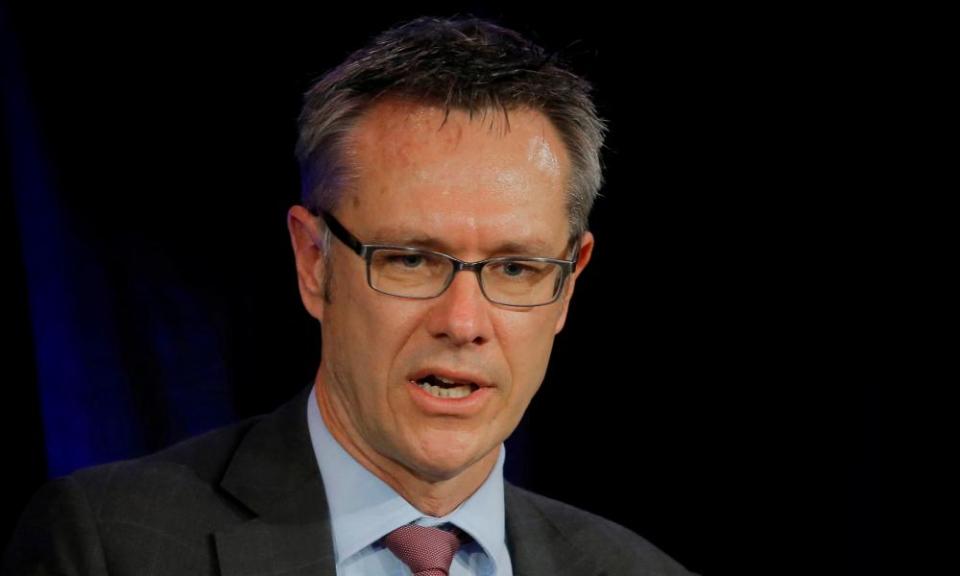RBA warns government: 'Be careful of removing the stimulus too early'

The Reserve Bank of Australia has a message for the Australian government: don’t pull out too early.
In a speech to Australian Business Economists, the deputy governor of the RBA, Guy Debelle, reiterated the importance of government stimulus to the economic recovery.
Just a day after the RBA released research showing the jobkeeper wage subsidy the jobkeeper wage subsidy – due to end in March – saved 700,000 jobs, Debelle said there were lessons from the global financial crisis which translated to the world’s current economic system. Among them: don’t cut off support too early.
“Be careful of removing the stimulus too early,” he said.
“A number of European countries learned this lesson to their cost after the global financial crisis.”
Related: Job losses would have doubled without jobkeeper in pandemic, research finds
Australia’s banks and governments were well placed to keep credit and stimulus lines running, Debelle told the group, and that money was crucial to ensuring Australia’s economic recovery as the pandemic response rolled on.
“Banks with strong balance sheets can lend to businesses and households to support the economic recovery, rather than being concerned with restoring balance sheets as has been the case in previous cycles,” Debelle said.
“The strong capital buffers of the banks are there to be used, not preserved.”
The lesson was to “keep the credit flowing”.
Central banks, such as the RBA, had played their role in helping to stabilise government bond markets, and in Australia at least debt was cheap.
“Public sector debt remains low as a share of GDP for the Australian government as well as the states and territories, even after the sizeable stimulus being implemented,” he said.
And without that sizeable stimulus?
“The Australian economy would be much weaker with the consequent economic and social damage,” he said. “This would have materially worsened the fiscal position.
“I don’t see there is a trade-off between fiscal sustainability and fiscal support in the current circumstance. The cost of borrowing is at historically low levels for Australian governments. Borrowing costs are likely to remain very low for quite some time, and almost certainly until the economy is considerably stronger.
“This means that the debt dynamics for the Australian government and the states and territories are absolutely sustainable.”
The RBA’s warning on stimulus follows Treasury’s advice to the government in July to tread carefully in altering the rate of stimulus provided through the unemployment benefit jobseeker and jobkeeper.
Since then, the government has lowered the rate of support in both, with jobkeeper to expire in March, and the Covid supplement for jobseeker to be cut to just $150 a fortnight from January.
Debelle’s speech followed the RBA boss, Philip Lowe, earlier this month confirming a shift in Australia’s monetary policy, moving from a focus on inflation to a focus on full employment.
In Australia, full employment has largely meant a 5% unemployment rate. Debelle said ongoing stimulus, combined with monetary policy stimulus through the RBA’s bond purchases, would not only boost spending in the economy, it would boost employment and “in time, reduce unemployment”.
“A materially lower unemployment rate is clearly desirable in itself, but will also be necessary before we will see sustainably higher wages growth and inflation,” he said.

 Yahoo Finance
Yahoo Finance